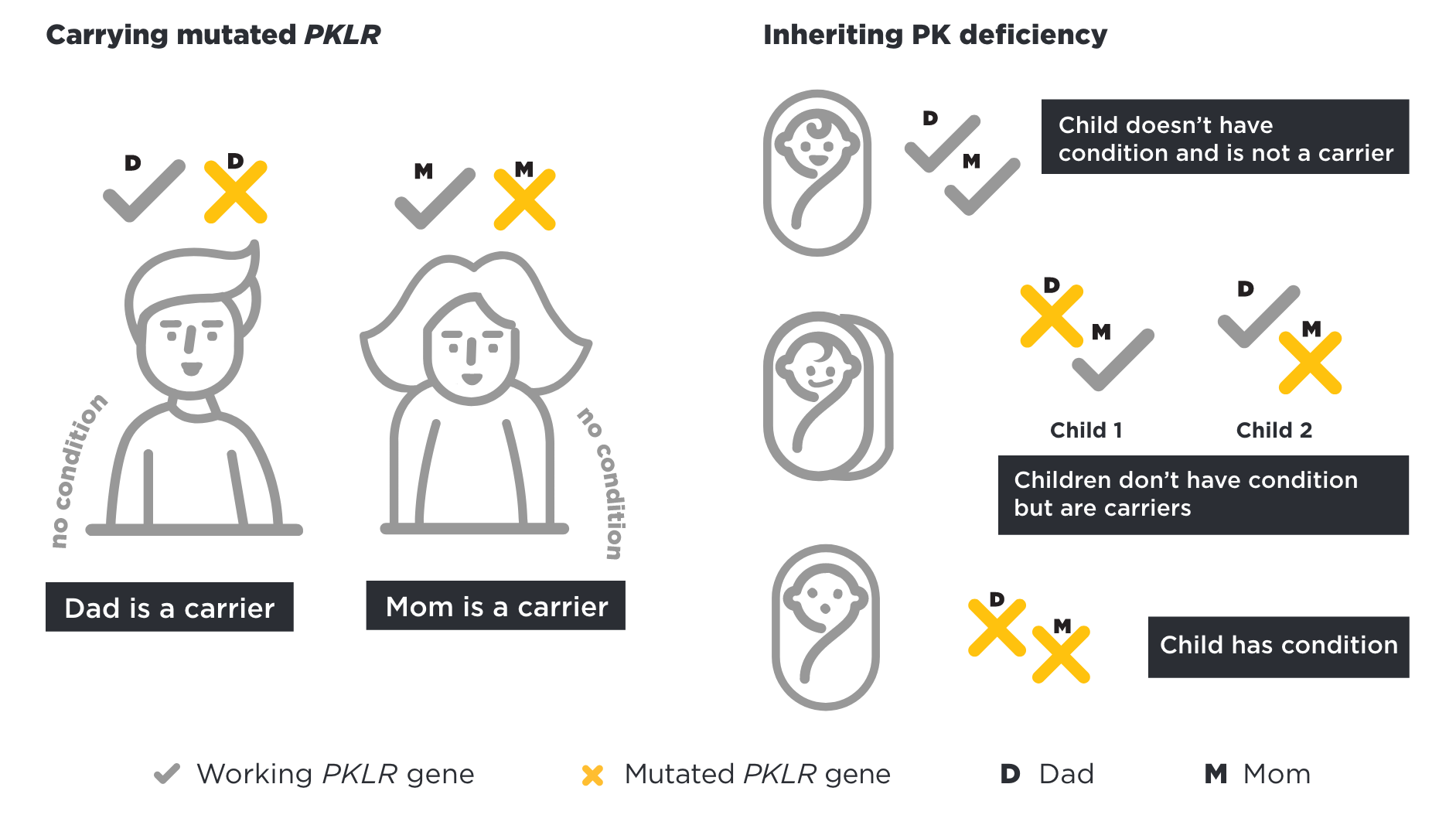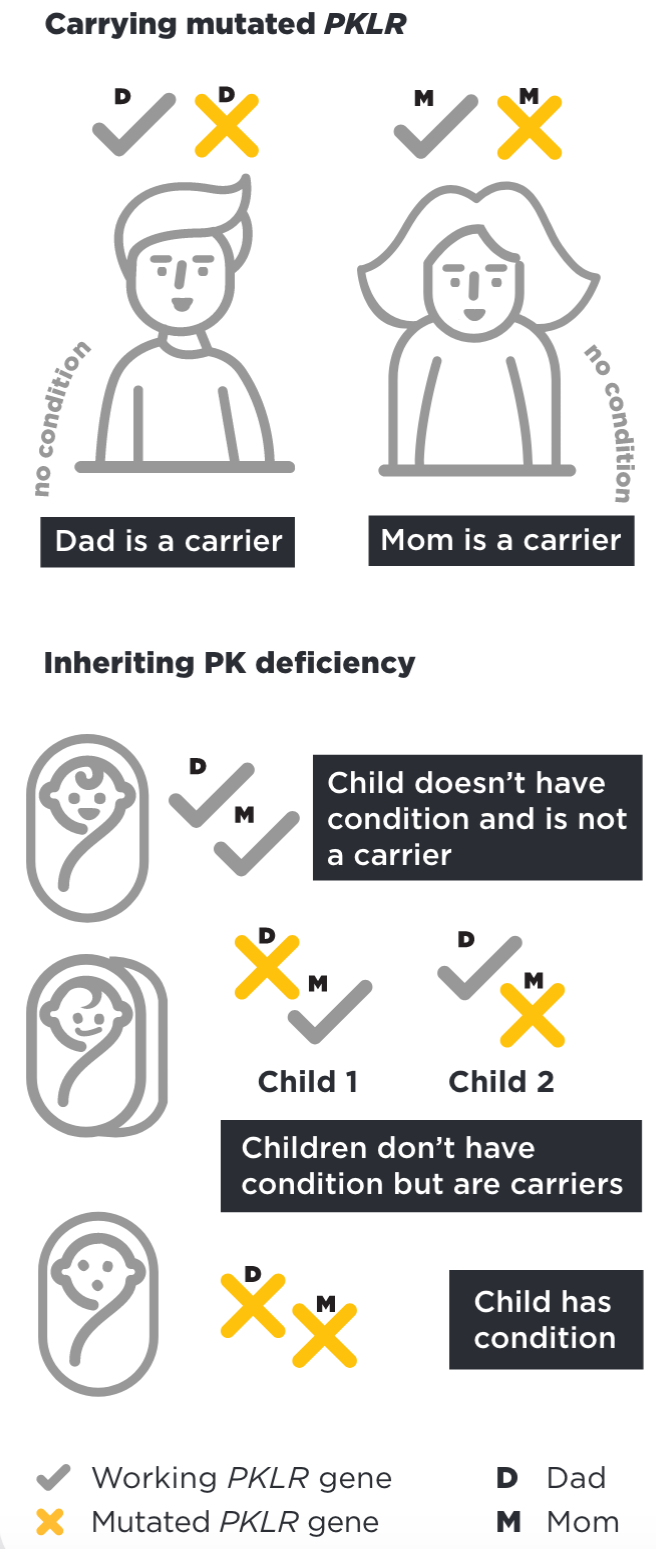What Causes PK Deficiency?
PK deficiency is a genetic disease caused by a mutation in the PKLR gene
PK deficiency is an autosomal recessive mutation passed down from parents to their children. The PKLR gene tells the body how to make an enzyme called pyruvate kinase R, or PKR. In PK deficiency, the mutated gene creates PKR that doesn’t work properly. As a result, red blood cells (RBCs) can’t make enough energy and die too soon.
Explore the key terms used on this page
Autosomal recessive inheritance


In an autosomal recessive gene inheritance, carriers, or parents, each have one copy of the mutated gene that they pass down to their child. Parents themselves do not usually have PK deficiency. To inherit the condition, a child receives a mutated PKLR gene from both parents.
Doctors can test for PK deficiency in two ways
Enzyme Assay
In most cases, PK deficiency can be detected with a blood test (called enzyme assay) to measure the amount and activity of the PK enzyme.
Genetic Testing
Genetic testing can be used to help diagnose PK deficiency or confirm a case based on decreased PK enzyme activity.
Often, both methods will be used to determine if someone is affected.
Talk to your doctor about further testing if:
- You have PK deficiency, but your diagnosis has not been confirmed with genetic testing. Genetic tests can help you, your family, and your doctor have a more comprehensive understanding of your PK deficiency
- You’ve been diagnosed with chronic hemolytic anemia, but don’t know the cause. Genetic tests and enzyme assays could reveal more details about your condition
Gene: Stretches of DNA. Different genes have different jobs, but many genes tell the proteins in our bodies how to work
Gene mutation: A permanent change in the DNA sequence of a gene, altering the gene’s ability to make a protein and causing the protein to stop working properly
Chromosome: A very long strand of DNA that’s stored in the cell’s nucleus and contains its genetic information. Each chromosome may contain hundreds to thousands of genes
DNA: The genetic material that tells a cell how to grow and what its job is
Autosomal recessive gene inheritance: A genetic disease that is inherited from receiving 2 nonworking copies of a gene
PKLR: The gene for pyruvate kinase
Enzyme assay: A measurement, determined by a blood test, of how active an enzyme is
DID YOU KNOW?
Over 300 different mutations of the PKLR gene have been identified. Approximately 25% of people diagnosed with PK deficiency have versions of the gene mutation that are newly discovered.
PK deficiency is different for everyone
Recognizing how symptoms are affecting you can help you get the best care
See the range of symptoms